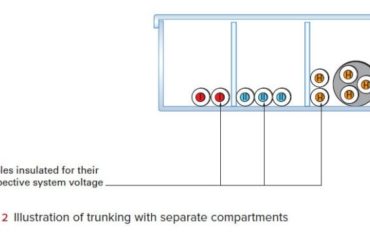 Government plans to introduce mandatory electrical safety checks in PRS homes are being backed by the RLA – however the body says tests must be risk based.
Government plans to introduce mandatory electrical safety checks in PRS homes are being backed by the RLA – however the body says tests must be risk based.
The association agrees compulsory checks of the fixed wiring are necessary due to the wide range of homes and standards within the private rented sector and on this basis have proposed a risk based frequency for testing.
There is currently no requirement to bring in regulation for electrical testing under the Housing and Planning Bill, so a working group was set up by DCLG to discuss the pros and cons of compulsory checks of PRS homes.
In a submission to the DCLG the RLA said it believes tests are a good idea, but risk must be taken into account when considering how frequently they must be carried out.
RLA Director Chris Town, said: “Compulsory five yearly testing has been brought in in Scotland where housing is a devolved power, but we need to remember that Scotland has a relatively small population, so what is suitable there is not necessarily suitable here in England.
“The PRS in England is huge and extremely diverse, ranging from £1million properties to tiny bedsits and everything in between and the RLA believes the best course of action would be to bring in a risk-based system.
“At the moment mandatory HMOs must have five-year electrical safety test as they are deemed to be high risk, suffering multiple and intensive use. However, if you have a family home for instance, there isn’t the same demand on the system, so there should be a longer test cycle.
“The RLA proposes a system whereby only high risk properties are placed on a five-year cycle.
“This is not just because of the expense of doing the checks but the inconvenience to the tenants.
“To carry out these checks every single fixed electrical fitting, such as sockets, switches and light fittings must be opened up and examined, it is not just a case of plugging in a tester.
“This can take half a day or longer and is much more intrusive and expensive than a gas safety check.”
The RLA also recommends the installation of Residual Current Devices, which offer added protection for the occupants from electric shock and can offer extra protection from faulty appliances.
The association’s response is now with the DCLG. Civil servants will now look at representations from a range of organisations to decide whether to bring testing forward, and if so what form it will take.
Source: https://news.rla.org.uk/electrical-safety-checks-must-risk-based/



